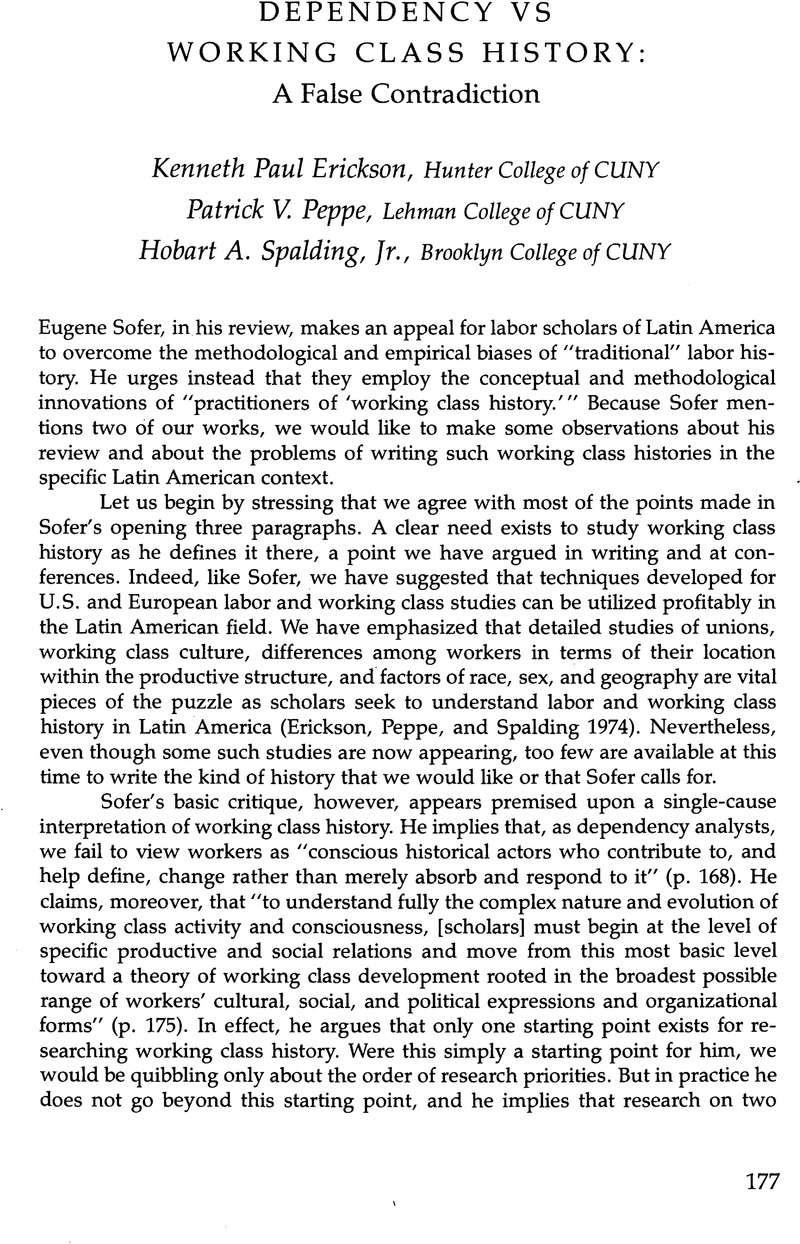Crossref Citations
This article has been cited by the following publications. This list is generated based on data provided by Crossref.
da Costa, Emilia Viotti
1989.
Experience versus Structures: New Tendencies in the History of Labor and the Working Class in Latin America—What Do We Gain? What Do We Lose?.
International Labor and Working-Class History,
Vol. 36,
Issue. ,
p.
3.
Spalding, Hobart A.
1989.
Somethings Old and Somethings New.
International Labor and Working-Class History,
Vol. 36,
Issue. ,
p.
37.





